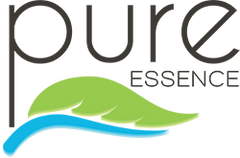Did you know that January is the busiest time of the year for gyms? This should come as no surprise because countless New Year’s resolutions involve fitness or health. However, the surge in gym attendance also means crowded gyms. And whether you’re a first-time gym goer or long-time gym nut, you may be concerned about getting the most out of your workout in those crowded conditions. Thankfully, crowded or not – you CAN still get a good workout in any gym.
Truth be told, you don’t even need a gym membership to work out – you can exercise in the comfort of your home if you want to. All you need are the right tools. A good, solid workout routine needs just three things – a well-designed routine, a healthy diet to support it, and the effort/dedication to make it work. Today, we’re going to focus on that second part – specifically, on specific supplements that you can add to your diet to support and boost your workout results.
Do I Need a Supplement?
The short answer is, “No, not if my diet is nearly perfect.” If you really know how to plan your meals and snacks, you can get the carbs you need for workout energy and the protein to build strong muscles through your diet. Still, supplements can improve results even for those whose food choices are excellent.
The purpose of using supplements with your workout routine is to help your body increase its endurance, performance, recovery, etc. Just like health supplements, each workout supplement contains specific ingredients to target particular areas of your body – some may help build muscles, others augment energy, etc.

Here are 5 supplements that we think you should consider.
Protein – Protein is one of the most common and popular workout-boosting supplements, and for good reason. Adding extra protein to your diet, especially within about 30 minutes after your workout, can improve muscle growth, strength, and recovery.
Whey protein is a particular favorite among athletes because it may digest more quickly and has a nearly perfect amino acids profile. Having the right amino acids means your body has the building blocks it needs to generate the new proteins that repair existing muscles and grow new ones. [1] Of course, these days, plant-based proteins are also quite popular and can be at least arguably as effective as whey. Ask your gym or health store owner for combinations of plant proteins that approach the values of whey.
Branched Chain Amino Acids (BCAA) – BCAAs are three specific amino acids – leucine, isoleucine, and valine. Studies show that these three amino acids have a profound influence on muscle strength and physical endurance, with most evidence suggesting that they are best when taken before and/or during your workout. Suggested usage is around 90 mg per pound of body weight (9 grams per 100 pounds).
As mentioned above, amino acids accelerate protein synthesis, which can help repair muscle tissue and ease delayed muscle soreness. [2] Research has shown that BCAAs can also increase energy, endurance, and stamina, especially in runners. [3]
Electrolytes – Replenishing your electrolytes is important any time you sweat heavily. Electrolytes are essential for keeping your body hydrated and helping prevent cramping. When you sweat, you lose a lot of electrolytes and replacing them can make a world of difference.
Magnesium, calcium, and sodium bicarbonate are arguably the most important electrolytes to replenish during intense exercise. Magnesium and calcium help with muscle recovery and play a major role in bone health. Magnesium also helps prevent cramping, while sodium bicarbonate helps minimizes acid and guards against muscle fatigue.
Cordyceps – Cordyceps mushrooms help increase the body’s production of the molecule adenosine triphosphate (ATP), which is essential for delivering energy to the muscles. This may improve the way your body uses oxygen, especially during exercise.
Creatine – Creatine is perhaps the single most effective and beneficial supplement to add to workout routines, [4] especially for resistance/strength and high-intensity interval training.
By increasing the ATP available to muscles during your workout, creatine increases the power behind each muscle contraction. It also increases water retention in your muscles, making them fuller and stronger, which can help stimulate muscle growth.
Whether you use all of these or any combination of supplements, remember not to see them as magic bullets. For best results, you also need a healthy diet, which will include:
🗸 5-9 servings of fruits and vegetables daily
🗸 15-20 cups (120-160 oz.) of water daily, with at least 28 oz. to be drunk with your workout routine
🗸 A multivitamin like LifeEssence™ Powder, which is a potent whole-foods formula source of vitamins, minerals, adaptogens, SuperFoods, Superior Herbs, and phytonutrients. A daily multivitamin is the perfect way to round out and boost your general health, as well as energy.*
🗸 And a good balance of proteins, carbs, and (healthy) fats.
With a good diet and the right supplements, a faithfully executed, well-designed workout will yield great results.
Sources
[1] Tipton, K D, and R R Wolfe. “Exercise, protein metabolism, and muscle growth.” International journal of sport nutrition and exercise metabolism vol. 11,1 (2001): 109-32. doi:10.1123/ijsnem.11.1.109
[2] Jackman, Sarah R et al. “Branched-chain amino acid ingestion can ameliorate soreness from eccentric exercise.” Medicine and science in sports and exercise vol. 42,5 (2010): 962-70. doi:10.1249/MSS.0b013e3181c1b798
[3] Blomstrand, E et al. “Administration of branched-chain amino acids during sustained exercise--effects on performance and on plasma concentration of some amino acids.” European journal of applied physiology and occupational physiology vol. 63,2 (1991): 83-8. doi:10.1007/BF00235174
[4] Kreider, Richard B. “Effects of creatine supplementation on performance and training adaptations.” Molecular and cellular biochemistry vol. 244,1-2 (2003): 89-94.

